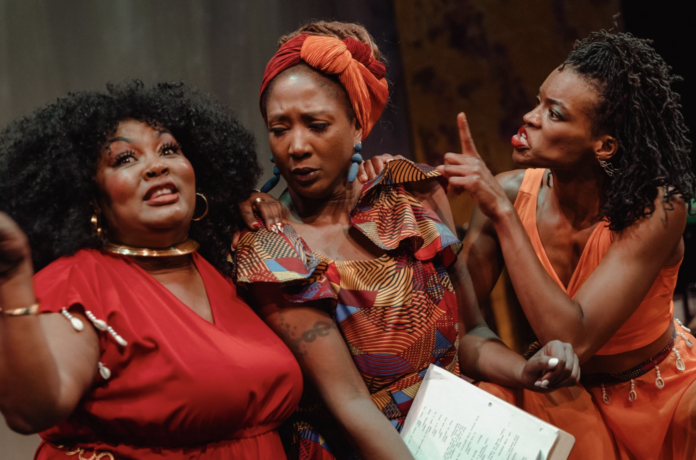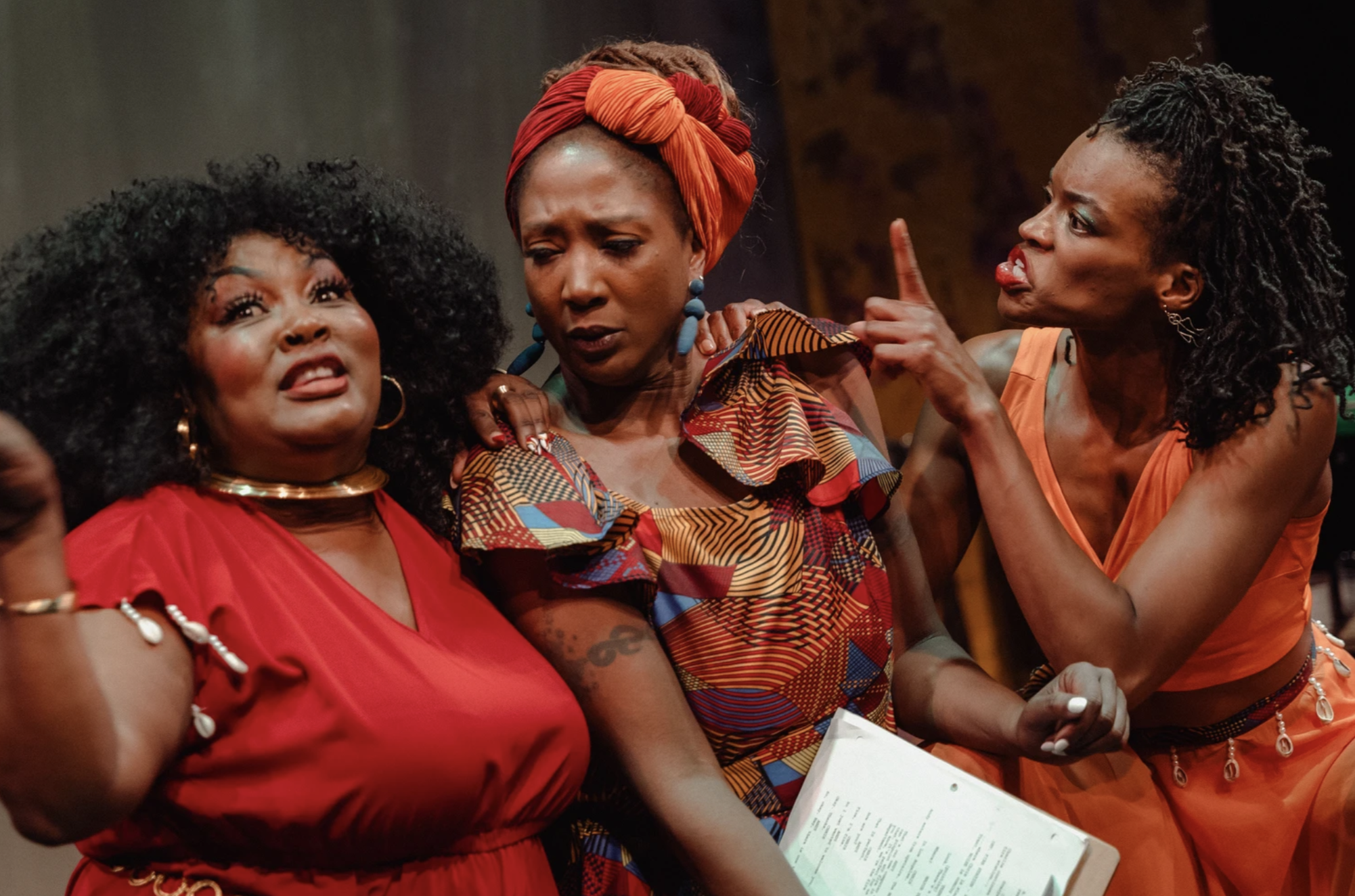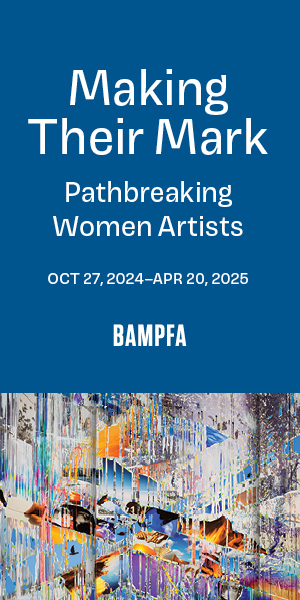When’s the last time the theater expanded your notion of greatness?
Award-winning playwright, author, and scholar Lisa B. Thompson’s The Black Feminist Guide to the Human Body (through October 6 at Lorraine Hansberry Theatre) queues up just such a lesson. The play’s rolling world premiere tells the stories of feminist scholars, mothers, leaders, and assorted luminary artists and activists, both past and present-day. Described by the playwright herself as, “the delicate poetry, lush history and sweet melodies of Black womanhood,” the show invites and encourages a re-envisioning of living while aging.
Thompson’s plays often push against stereotypes about Black life, especially in the US middle class. She is the author of Beyond the Black Lady: Sexuality and the New African American Middle Class and The Mamalogues: Three Plays, among other off-Broadway, national, and international productions. Currently a professor of African and African diaspora studies at the University of Texas at Austin’s theater and dance department, Thompson also works as co-host and co-producer of the Black Austin Matters podcast.
In an interview with 48hills, Thompson says, “What I do is very specific: be universal. One of the greatest compliments I got about [her play] Single Black Female was from a queer white older couple of men, who said, ‘Thank you for telling our stories.’ That two white men said they felt seen? I did my work.”
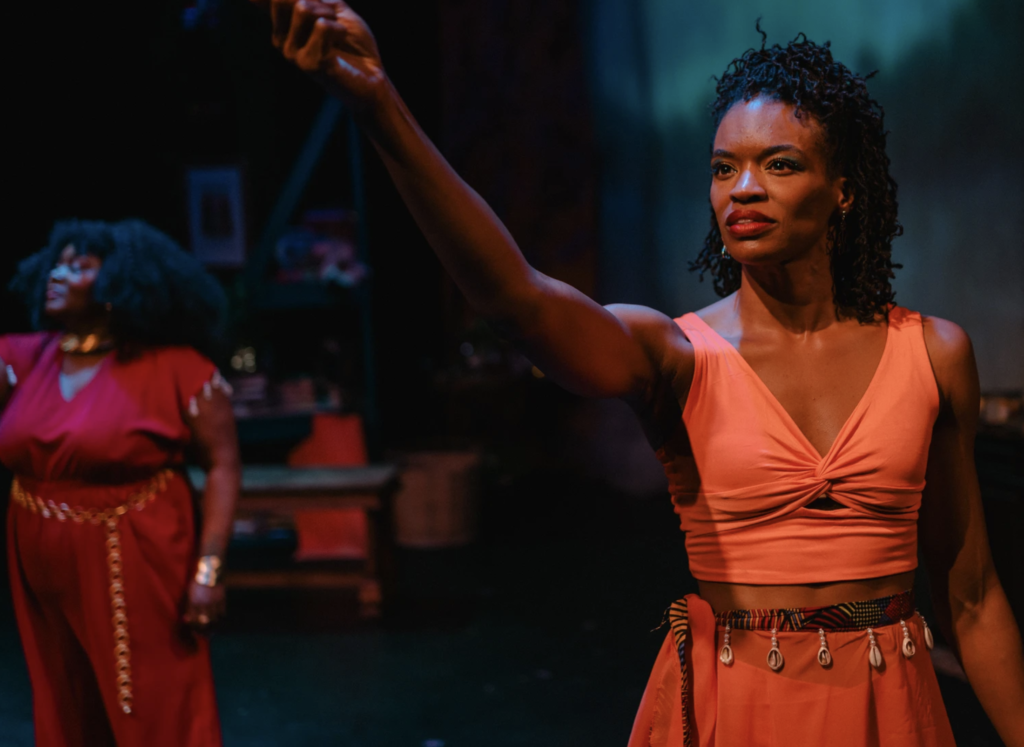
Thompson recognizes that everyone is trying to figure out how they fit into the world—and how they might make it a better and safer place as they age. “I’m thinking of what I want to pass on to other people around that,” she says. “I’m my parent’s fourth child of four children spread over 14 years, so I’ve always loved being around people of different generations.”
Serving as The Black Feminist Guide‘s director is Margo Hall. As LHT’s first female artistic director in more than 40 years, Hall found that Thompson’s script resonated deeply.
And so, LHT brought it to San Francisco. To accompany the production, the creative team also put out a call to Black girls and women of all ages for a “Black Women, Soft Life” video interview project. Among its prompts: “What advice could you use from an ancestor right now?” And “What does joy look like to you?” The videos they received in response will be shown at every performance of The Black Feminist Guide.
“Black women, as my friend says it, we’re doing CPR on the nation,” says Hall. “We’re always the ones who come through and save. Sometimes we just want peace, and a softer life.”
Such a notion is not always within one’s reach, Hall acknowledges—but she knows what it would look like for her. “A softer life is taking time for self-care, going on vacation, making space for creativity, laughing, dancing, and resting with other Black women, addressing changes related to our bodies and aging. You know I’m gonna have to do it, because I’m getting old,” she laughs.
She finds such efforts to define health and happiness crucial. “Black females had to create their own movement,” says Hall. “They were excluded from the white feminist movement. This play speaks to things we had to deal with that white women did not. There are also things Black women don’t discuss, both then and now: growing old, mental health, issues regarding racism, talking about our hair, really talking about our bodies and how Black women are categorized in derogatory ways. We’re called ‘too Black,’ or it’s said that because of the way our hips are, we’re promiscuous.”
Hall is most gratified by summoning Black feminists onstage who refuse to hew to Hollywood’s versioning: they’re not gang leaders, sidekicks, or “the triumphant, always pontificating grandmother or auntie.” This play’s characters include an academic who dares to make her voice heard during an era in which university professors can be put in jail for teaching critical race theory.
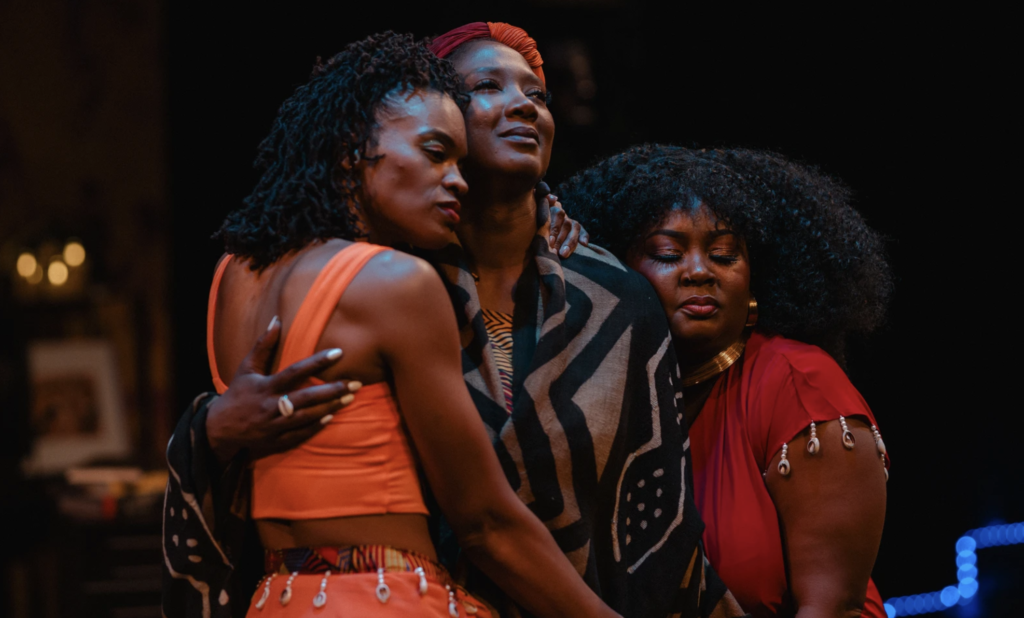
The play’s script pays tribute to Black feminists from history, such as Audre Lorde, bell hooks, and Hansberry. Hall sees her own success as having stemmed from illustrious fore-bearers, many of whom continue to be involved in her career. “My high school teacher, Linda Hutcherson, is coming to see the play. And there’s Harry J. Elam, Jr., former president of Occidental College and a professor when I was a graduate student at Stanford University. He told me after seeing Single Black Female, ‘You got this. Go ahead and finish your dissertation, but you’re good enough to do this now.’ Another person is Valerie Smith, who’s now president of Swarthmore College.”
“They see their students as they are and interact in the way each person needs,” she continues. “They work to help each student’s craft and clarify their skills and art. They’re part of a pioneering generation. They never had classes in African American studies: they made [the discipline] exist.”
Thompson says any potent Black feminist movement today must tell the stories of an overlooked generation of women playwrights over the age of 40. “We need not just voices of people coming directly out of grad school. A lot of support is for emerging voices under 30. I want to see that too, but also the voices who evaporated into the ether because of when they were born. They are worthy writers, performers, leaders.”
The playwright says men in the audience need not worry they will be “blasted by a feminist work.” The play invites everyone to participate in the show’s reparative energy. “It’s a shoutout to all races and genders to come see a wide variety of Black womanhood on stage,” she says. In Atlanta, someone in the audience for her play, Monologue, shouted out, “Help us, get this.” The phrase, with the comma, calls not for rescue, but for support, understanding, and awareness.
THE BLACK FEMINIST GUIDE TO THE HUMAN BODY runs through October 6. Fort Mason Center for Arts & Culture, SF. Tickets and more info here.

